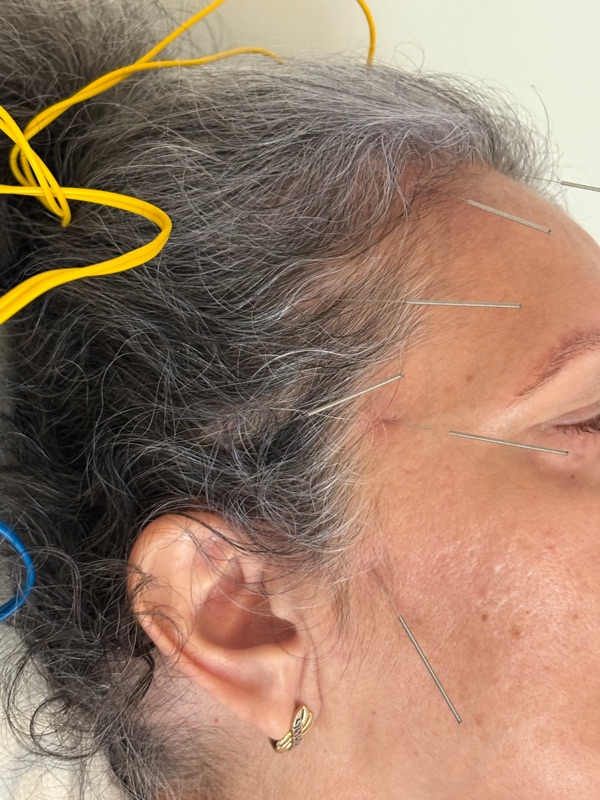Kit Li
As part of the Brain Acupuncture Internship Program, three full days of observation in Dr. Wang’s clinic are obligatory.
Last Saturday, I visited Dr Wang’s clinic to begin fulfilling my three-day observation requirement. A total of 11 patients were treated, some of whom have been long-standing patients, receiving brain acupuncture with Dr. Wang for over two to eight years.
I was fortunate to observe a wide range of cases, including three patients with Motor Neurone Disease, two with Anxiety Disorder, as well as others suffering from dementia, chronic depression, infertility, epilepsy, and insomnia...etc. Two patients had even travelled from Northern Ireland and Manchester. No matter the distance, their determination to see Dr. Wang was the most striking factor behind their commitment to treatment.
It has been a truly valuable experience that has deepened my understanding of Brain Acupuncture. What impressed me most during my observation was not only the variety of conditions treated, but also the patients’ responses, each of them left with a smile and a sense of positivity. They all share one strong belief: Brain Acupuncture has the power to change their lives.
Today was my second day of observation at Dr. Wang’s clinic.
I gained more insight into general practice, as every practitioner has their own unique approach. I also observed the use of electro-acupuncture, along with an advanced technique in abdominal acupuncture. Although I was already trained in this at LACA and have confidently applied it in my own practice, Dr. Wang’s teaching refreshed my perspective.
In terms of patients, we saw a few under 50s who had suffered from post-stroke syndrome and brain injuries. Most of them had delayed treatment and missed the crucial stage for appropriate care due to misdiagnosis in the early stages.
Just a thought: ‘Health is not something we can take for granted.’ As practitioners, we should strive to keep ourselves healthy and well, both mentally and physically, otherwise, we may not be able to help others.
I’m looking forward to my next observation.

Reflection on My 3-Day Internship at Dr. Wang’s Clinic:
I feel very grateful for the opportunity to observe patients at Dr. Wang’s clinic, especially those with neurological disorders I had not encountered before.
Many patients had missed the best time for treatment due to early misdiagnosis, which made me realise how crucial early and accurate care is.
Working with Dr. Wang showed me how effective brain acupuncture can be. I also learned a lot from observing his interaction with patients, the trust and connection between them were truly inspiring.
I gained new insights into different treatment styles and observed techniques such as electro-acupuncture and abdominal acupuncture. These experiences deepened my understanding and refreshed my approach to practice.
Our discussions on treatment approaches were particularly insightful and further strengthened my commitment to advancing my knowledge in this field. We also discussed how to treat post-stroke and Parkinson’s syndromes, which I found very inspiring.
Thank you Dr Wang.







